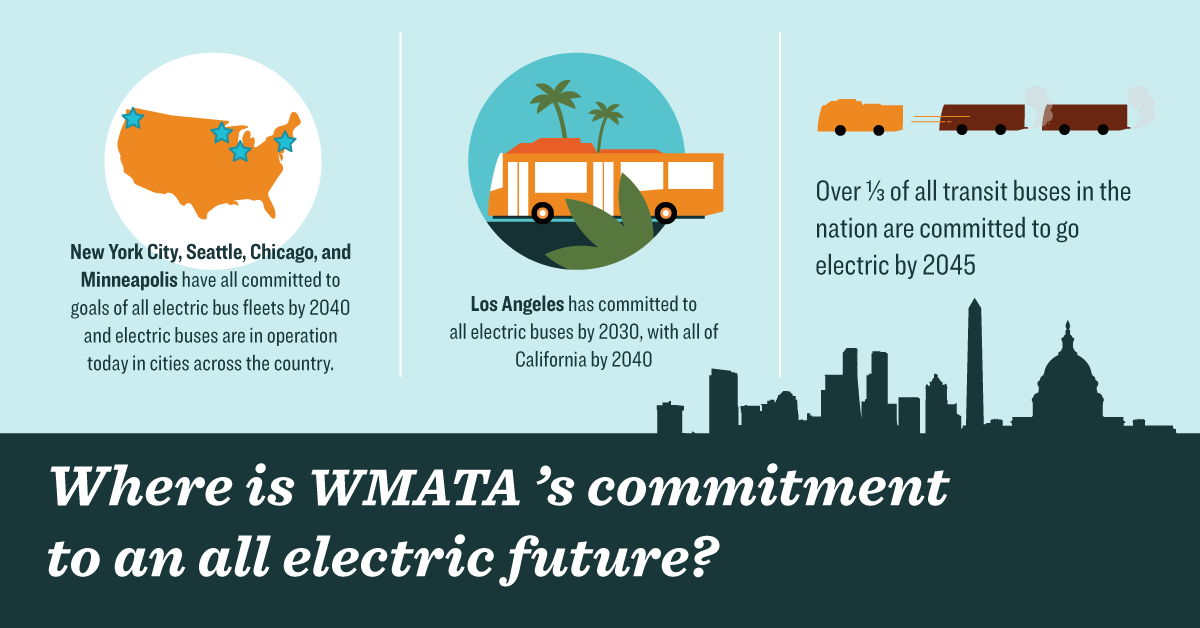Twenty years ago, when I worked for the Natural Resources Defense Council, I partnered with Mark Wenzler, then chair of the Washington, D.C. Sierra Club chapter, to successfully lobby the Washington Metropolitan Area Transit Authority (Metro) to buy compressed natural gas buses (CNG), the cleanest option at the time. Bus authorities across the country were switching to CNG, but Metro was planning to continue to only buy diesel buses.
Thanks to our campaign—which was supported by the D.C. City Council, the mayor, and 20 environmental, faith, and health organizations—Metro changed its order, and today a third of its 1,500 buses run on CNG.
In 2020, Metro has an even better option than CNG: electric buses. As the Sierra Club points out in a new report, electric buses—unlike diesel and CNG buses—produce no toxic or carbon emissions and are cheaper to operate over their lifetimes.
Bus transit systems across the country recognize those benefits and are now moving expeditiously to replace their diesel and CNG fleets with electric buses. Los Angeles, which has the second-largest bus fleet in the nation, plans to convert all of its 2,300 buses to electric by 2028. San Francisco plans to have its 1,100 municipal buses all-electric by 2035. And New York City’s 5,700 buses, which make up the biggest fleet in the nation, will be all-electric by 2040.

Regardless, Metro is continuing to buy diesel buses. In 2018, it signed a contract to buy nearly 700 buses over the following seven years to replace roughly half of its fleet. Most of them will be diesel, the rest, CNG. Washington, D.C., will require all of its electricity to come from renewable sources by 2032, the most ambitious timetable in the country. If Metro buys mostly diesel buses over the next seven years, the last batch will still be on our streets in 2040, if not later.
Metro is taking some steps in the right direction, albeit small ones. According to its March 2020 “Zero-Emission Bus Update,” Metro is launching a two-year pilot project this year with 14 electric buses and installing charging infrastructure at two garages. But unlike a number of bus agencies, it has not announced a timetable for completely electrifying its fleet.
The Sierra Club is now partnering with Earthjustice, the Union of Concerned Scientists—where I now work—and more than a dozen other public interest organizations to urge Metro to more aggressively integrate electric buses into its fleet and buy the cleanest buses available while it is doing so. That means no more diesel buses, or what Metro disingenuously calls “clean” diesel buses, which only reduce particulate matter emissions—soot—by 10 percent.
Given that Metro is now grappling with a $212-million shortfall, it would make sense to stretch out its bus order and begin to replace its diesel buses with electric buses. The bottom line: Metro needs to clean up its bus fleet as soon as possible, and that means electrifying it.
